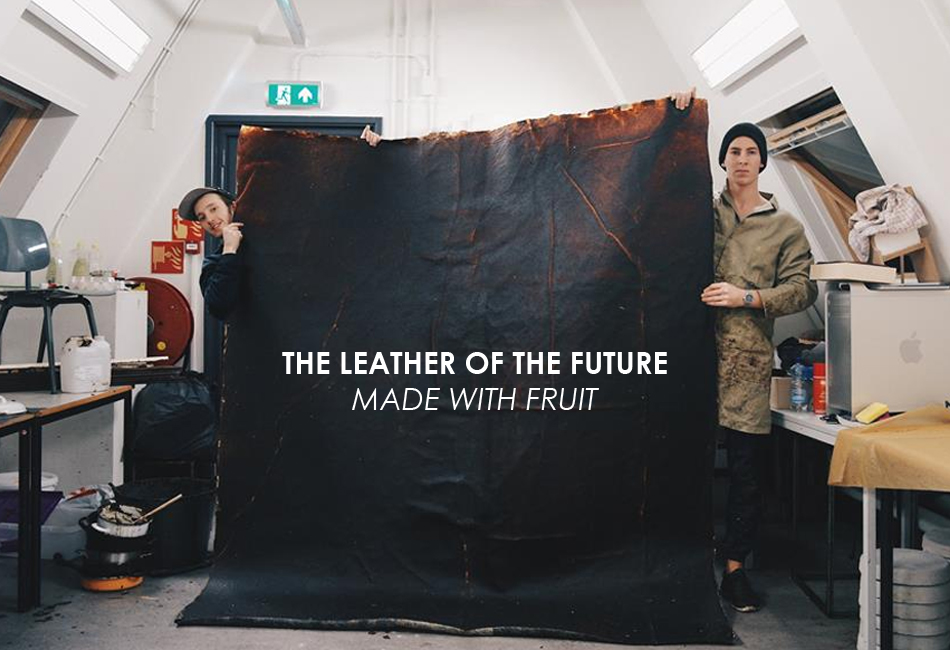Download Free Vegan Starter Kit -
.png)
The coconut industry in Thailand is not cruelty-free – Here’s why.
January 8th, 2023
Based on PETA Asia’s third investigation into Thailand’s coconut industry, highly intelligent monkeys are still being enslaved to pick heavy coconuts. This comes as a shock to animal rights activists around the world as the Thailand government had agreed to curb the use of monkeys in coconut-based industries. The investigations began in 2019 and 2020, after which PETA Asia had released footage that exposed this violent industry.
There was widespread backlash following the release that resulted in major US retail chains like Trader Joe’s and Costco to stop sourcing coconut milk from companies found to use monkey labour.
Thailand happens to be the world’s third largest exporter of coconuts after Indonesia and Philippines, exporting more than 500,000 tons in 2019. But since PETA’s first investigation, some coconut based retailers have seen a 30% decline in sales.
The monkeys mostly belong to the endangered species of macaques and capturing them entails a sentence of two years. Pig-tailed macaques are protected by Thai law and yet thousands of monkeys remain chained on coconut farms to date.
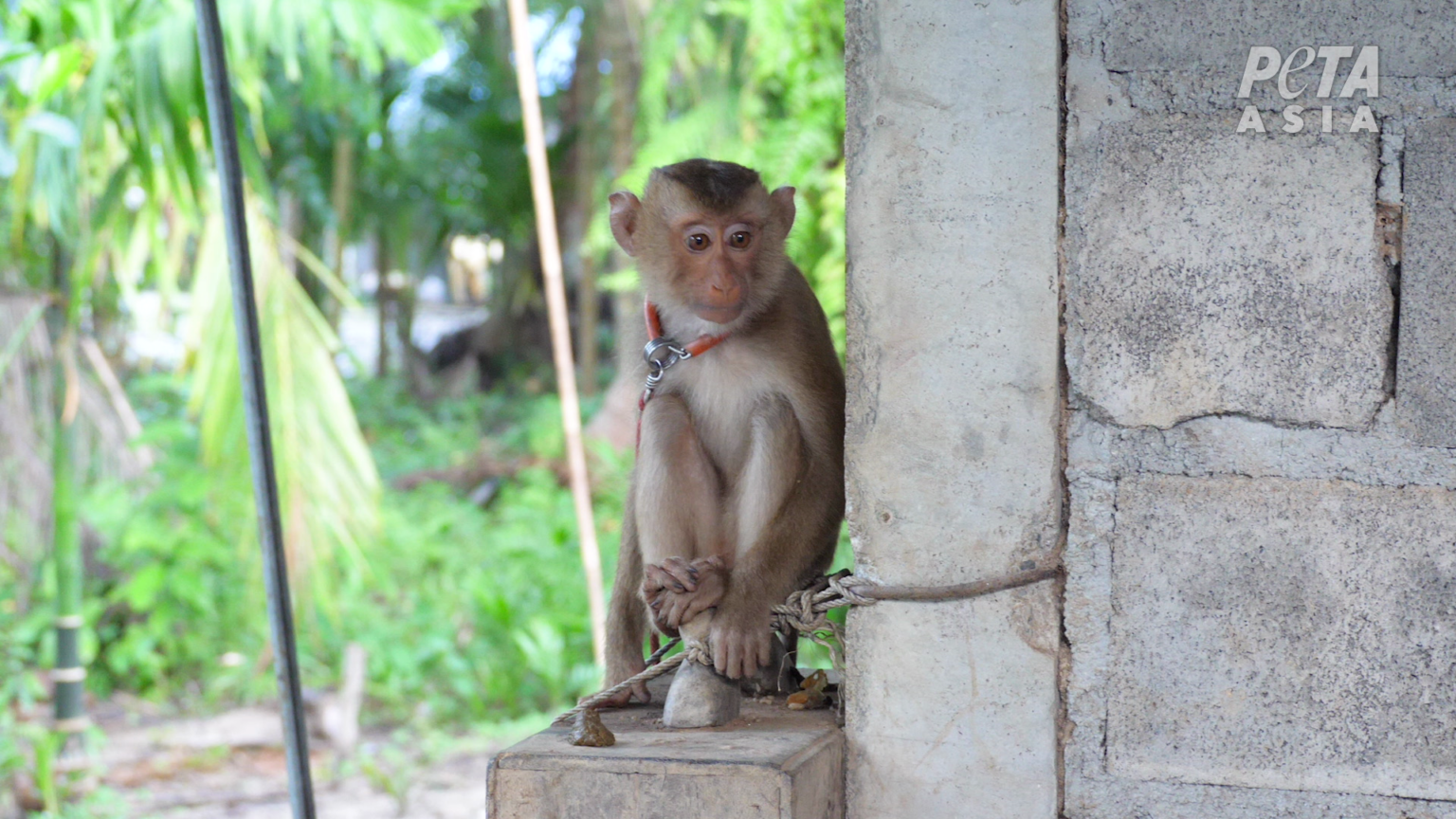
Image Source: PETA ASIA
Macaque monkeys are curious, social, and active animals. The Thai coconut industry prevents them from exercising any of these behaviours. They are kidnapped from the wild, snatched away from their mothers, and held captive in isolation. When they are not in “monkey schools” – where they are trained to pick coconuts, they are kept in small cages and unnatural surroundings.
Places like First Monkey School based in Surat-Thani have even designed courses based on the complexity of the task involved. When interviewed, the owners of the school denied that any form of abuse takes place while training the monkeys. Their stance is that the monkeys are trained with love and rewards and no amount of coercion is involved. However, the PETA undercover investigation reported that chained monkeys were made to perform in front of crowds and sit behind tourists for a scooter ride.
Another statistic that depicts the scale of abuse is the number of coconuts picked by each monkey daily. Female monkeys pick around 600 while male monkeys pick up to 1600. According to Arjen Schroevers (spouse of Somjai Saekhow – the owner of First Monkey School), these numbers are true only if these conditions are met – the monkey must be well-trained, in good condition, trees must be full of fruits, and close to each other so the monkeys can cover maximum trees in a day.
In a public letter, Arjen claimed that PETA is a “militant vegan organisation…trying to cut all ties between humans and animals”. He started by stating that “the entire PETA investigation is non-sense” and further continued to justify or refute the statements provided in the investigation’s reports. He was also quoted saying “…they (the monkeys) like the attention, and they enjoy working”.
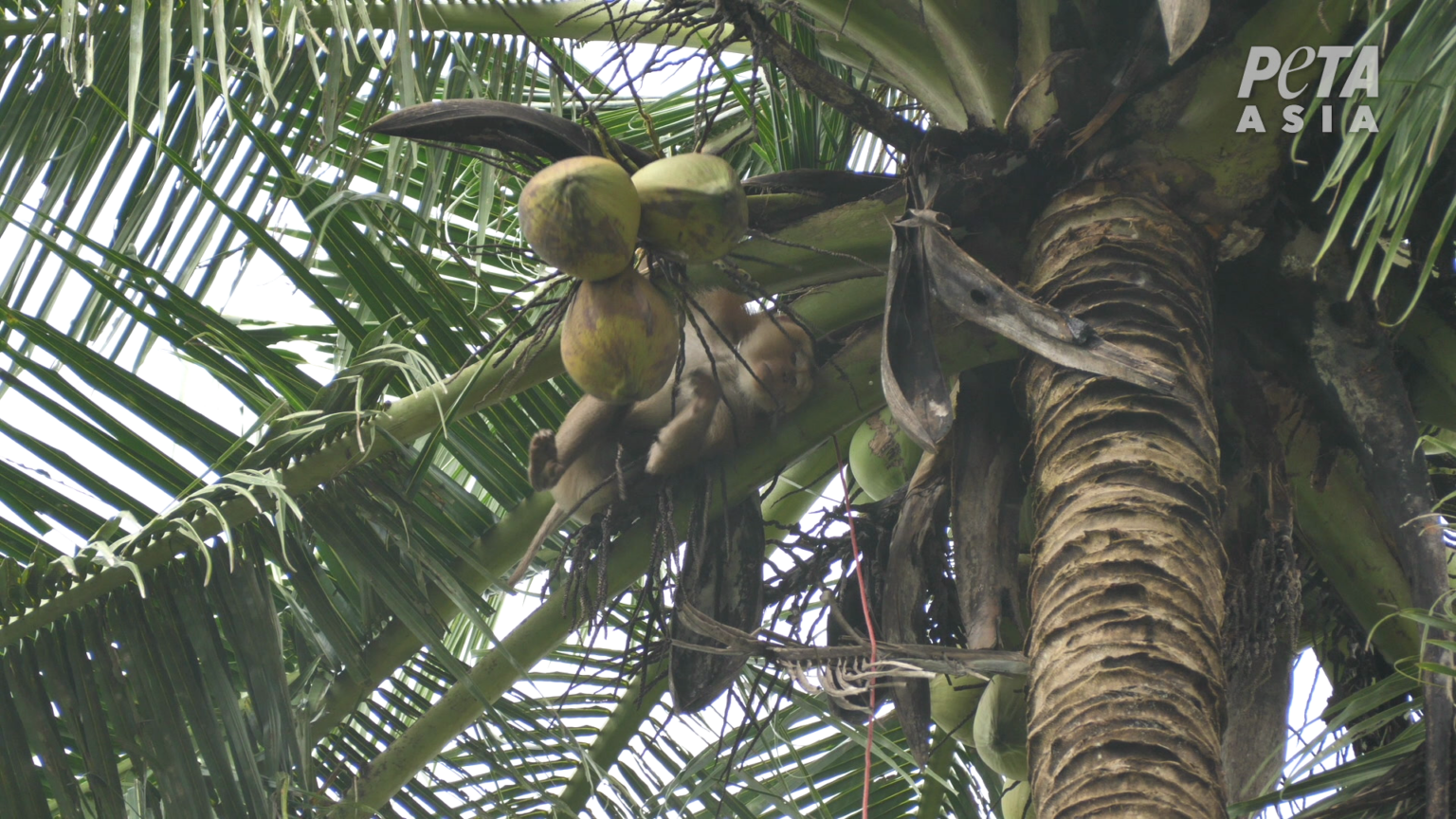
Image Source: PETA ASIA
From an animal rights standpoint, “training” any animal to perform certain tasks goes against their right to bodily autonomy and mental safety. When separated from their natural environment and family members, monkeys are conditioned to form bonds with their human captors or trainers and heed to their instructions.
This practice is equivalent to training animals for circuses and shows – an industry which has already banned the use of animals in India. It is a form of coercion if monkeys are rewarded to perform acts that they wouldn’t naturally, in the wild. Ethically, it is wrong to exploit animals for profit.
Videos of terrified monkeys being dangled by their necks and of monkeys pacing back and forth in anxiety are proof enough that unchecked violence goes on in these farms.
The Thai government is being unforthcoming with action against monkey labour despite the growing concern worldwide. However, they have stopped promoting monkey schools on their tourism website.
Avinash Desamangalam, a research manager at Mordor Intelligence, has studied the rise of coconut milk consumption in the world – and says that it is expected to double in the next 5 years. More and more people are turning to coconut milk as an alternative to dairy milk. Consumers wanting to lead a cruelty free life are facing a paradox – the supply chain for coconut milk sadly involves rampant cruelty and abuse of animals.
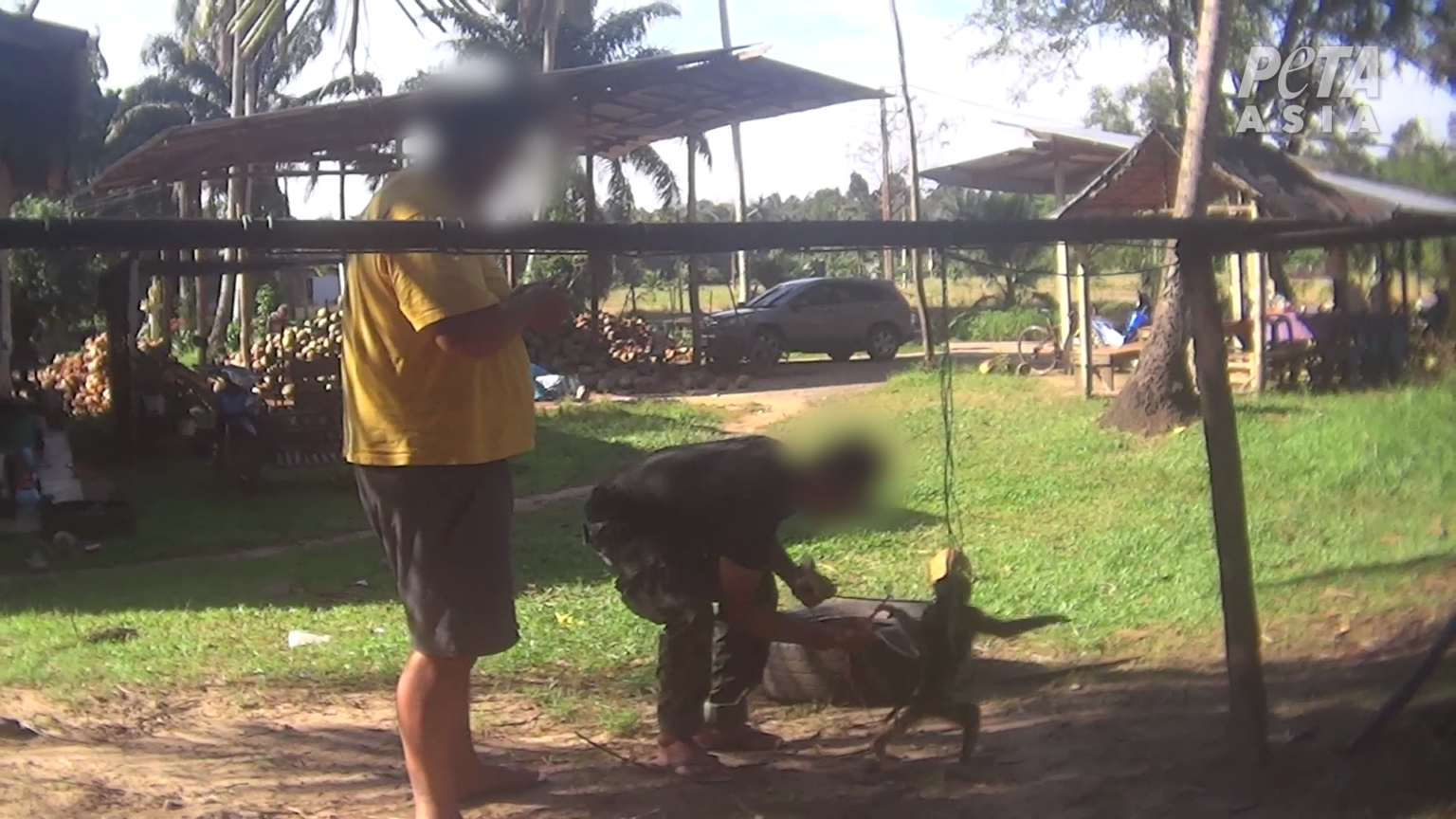
Image Source: PETA ASIA
There is a ray of hope that exists in this scenario. Fifteen years ago, an estimated 15,000 monkeys were held captive on coconut farms. Today there are 3000 captive monkeys. Thanks to revelations about monkey labour and growing awareness for animal welfare, organisations such as Wildlife Friends Foundation are rescuing and rehabilitating monkeys in higher numbers. The financial hardship caused during the pandemic also forced some coconut growers to surrender their monkeys to government-run centres.
To reduce suffering further, PETA’s corporate responsibility officer suggests that coconut-harvesting equipment could be subsidized for local farmers.
You can help, too, in the following ways:
1. Share this article, start a conversation
2. Join the petition Exposed: Thai Coconut Industry Abuses Primates | PETA
3. Donate to Wildlife Friends Foundation Thailand
4. Talk to your regular vendor about switching to cruelty free brands of coconut milk
5. Learn to make coconut milk at home
AUTHOR

trending
2.png)
Be a Vegan First Informer
Send us buzzworthy news and updates
Explore
Contact Us
About Us
Stay Connected
Copyright ⓒ 2017-2023. VEGAN PASSION PRIVATE LIMITED. All Rights reserved.
For more information, please write to hello@veganfirst.com
Registered Office Address: 55, 2nd floor, lane 2, Westend Marg, Saidullajab, Near Saket Metro Station, New Delhi, Gadaipur, New Delhi South West Delhi, DL

2.png)

.png)
.png)
2.png)
2.png)


1.png)

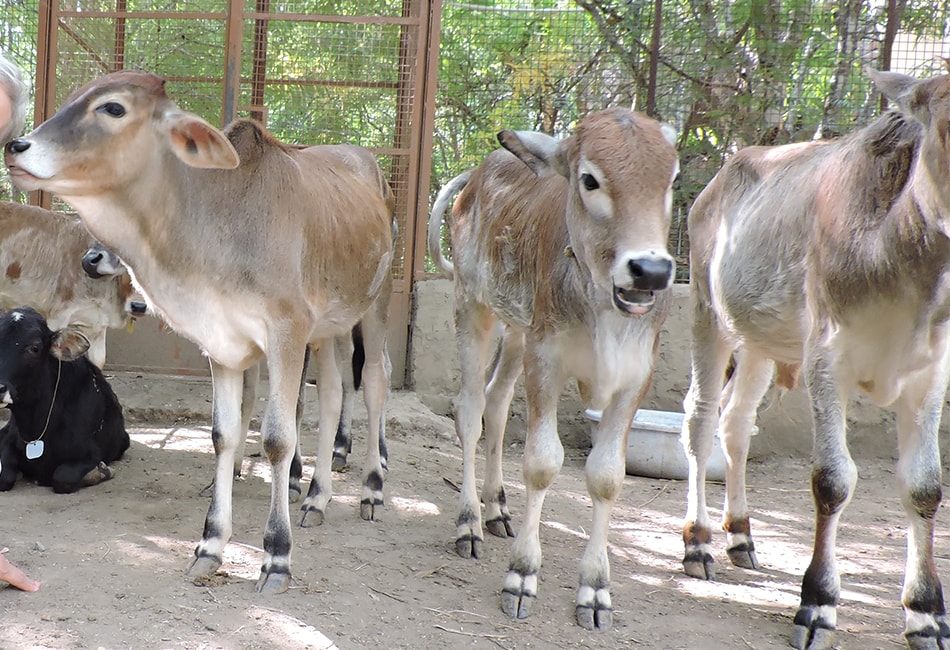
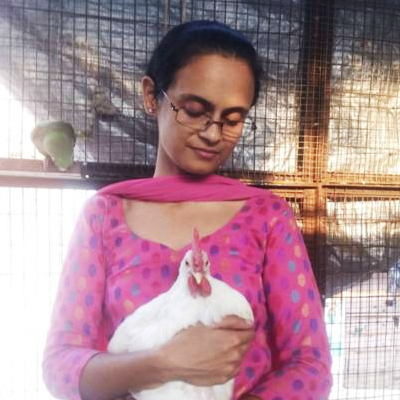



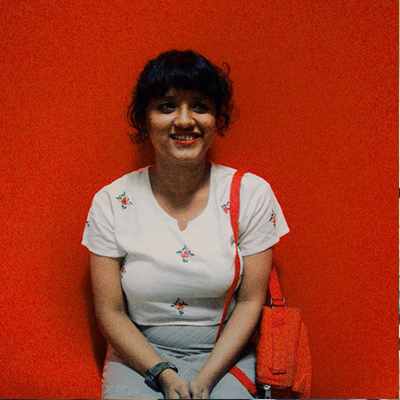
3.png)
